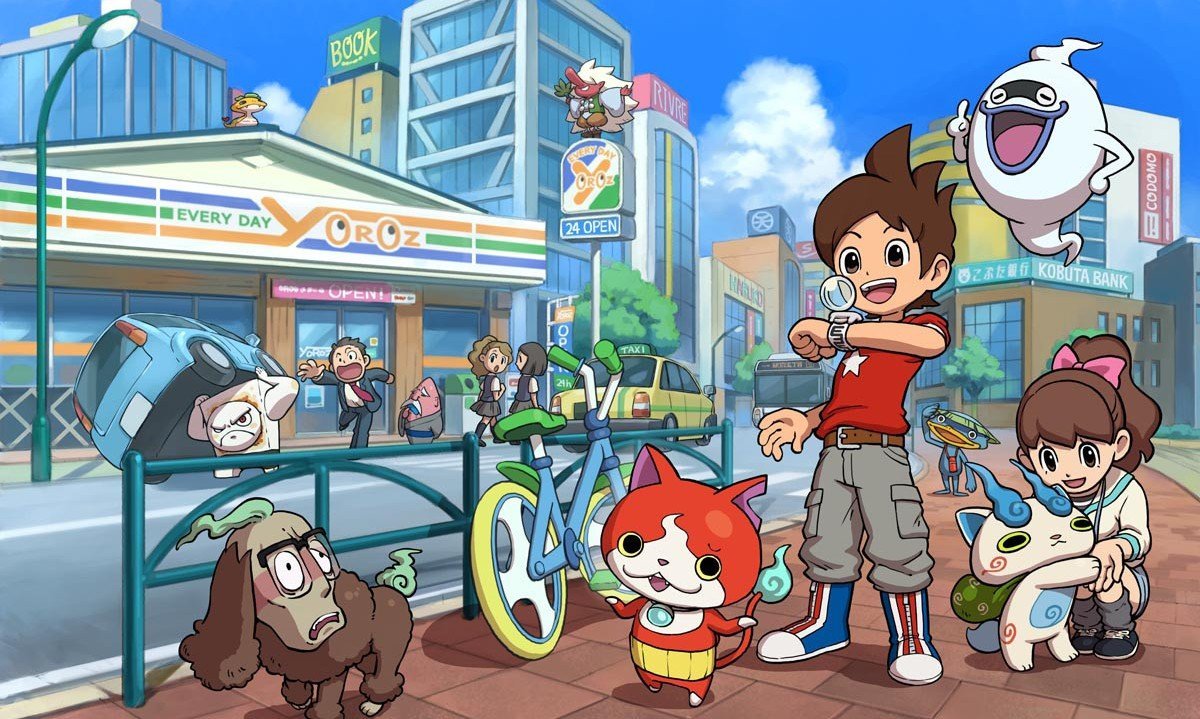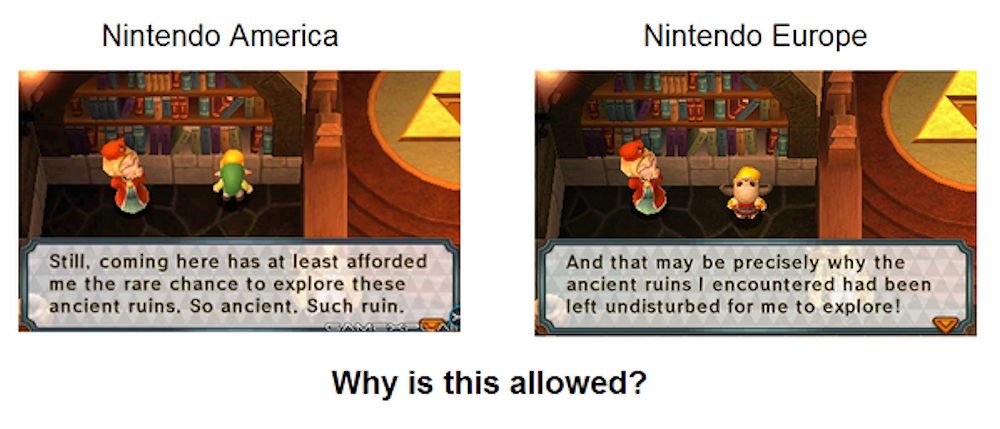Before I say anything else, I have a confession to make: for around a month after Yo-Kai Watch was announced for the west, I constantly wanted to correct people whenever I saw it typed. “It’s youkai, or even yōkai” “What’s wrong with you people?” It’s a good thing that I didn’t because upon further inspection, the game actually spells it yo-kai.
Fast forward a couple months: Nintendo announces that there will be a 2DS bundle packaged with Yo-Kai Watch. I pondered this for a second, “why specifically package it with the 2DS?” Then it came to me; the 2DS is more targeted at smaller children due to it’s more solid hinge-free design and reduced cost. This same concept was likely the driving force behind the game’s translated name; appealing to younger players by giving them a simpler way to pronounce the title. Admittedly, it’s a bit of a nitpick on my end, and as such, I let it go.
That brings us to our main course. On October 23, The Legend of Zelda: Triforce Heroes was released, offering fresh multiplayer puzzle-solving action. The game was generally well-received, but has recently caught flak for a bizarre choice in the American translation: a reference to a popular meme from a couple years back called Doge as shown in this now infamous image.
The outcry has been pretty widespread across social media, with responses detailing disappointment to outright swear-filled rants. Though these reactions are a bit extreme, they have a bit of truth to them; Nintendo games have always been friendly to all players and have been more or less timeless where this single bit of dialog seems to cater to internet-savvy teens and is already dated by over a year.
Ultimately, though these are independent and isolated incidents, I have never been more conscious of translation and the implications therein; and by the same token, though these two successive incidents don’t constitute a pattern, they both have a sort of bias towards younger audiences. Hopefully, this isn’t indicative of a shift from Nintendo’s classic “fun for all ages” angle, even in specific instances, or for a bid at internet pandering for that matter.



